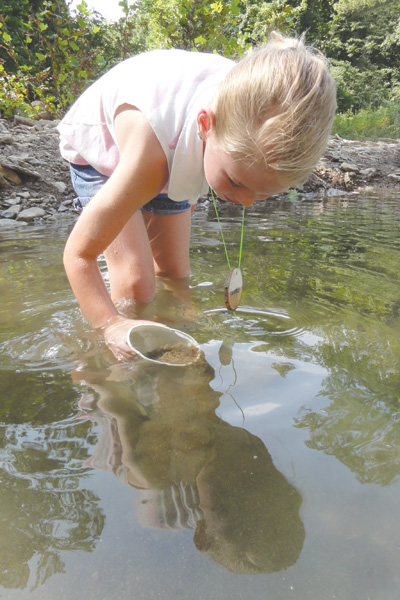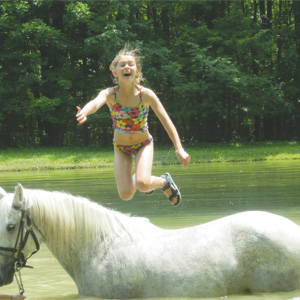 On the fence about summer camps for your child? Read on to help ease your mind …
On the fence about summer camps for your child? Read on to help ease your mind …
compiled by Dori Richards
What’s the best age for day or night camp?
The American Camp Association (acacamps.org), offers a simple but dependable guideline to determining the best age for camps. A child is ready for day camp experiences when they are old enough to be apart from Mom and Dad during the day, the ACA says, so preschool to school age is appropriate, depending on the type of camp. For overnight camp, the ACA says it’s when he can successfully spend one night away from home with a buddy. With kids starting sleepovers around age 8 or 9, independence emerges and he soon has the confidence to spread his wings. For some kids, this might not happen until 11 or 12 or later, but the bottom line is that one productive night away from home sets the stage not just for surviving but, in fact, thriving in a three-and-a-half or even seven-week session.
First-time for camp?
So many different camps to choose from! How are you supposed to know where to begin? And what if your child has never been to a camp before? Where to start? Caitlin Jones, manager of youth public education at Cincinnati Museum Center says start with a day camp. “Day camps are a great way for kids to start diving deeper into their interests while gaining a little bit of independence. Campers get to spend time away from home out of a school setting and making new friends. Then, at the end of the day, they’re still able to go home; it’s the perfect way to ease into it.”
Erin Morris, assistant manger of Explore Nature of the Cincinnati Park Board says first time campers will love day camps for a variety of reasons including:
Making new friends.
It’s all too easy for children to think the entire world is like their core group of friends and teachers. Camp brings the child in contact with kids from different schools, communities and cultures. This helps to broaden their social skills too.
An informal learning environment makes learning fun.
Children who may struggle in school can actually flourish in the camp environment.
Developing maturity.
Camp allows for choices in activities and participation. Many studies show that camp also improves their ability to concentrate and focus.
Opening up to new interests.
Children have the opportunity for a wide range of enriching activities such as art and crafts, active games, hiking/exploring, journaling and outdoor skills such as fire building, to name a few.
 No need for homesickness
No need for homesickness
You never know when homesickness will strike a child, but it does happen and outstanding camps know how to handle it. Tali Cornblath, program director at Falcon Camp in Carrollton, Ohio says camp counselors are the first responders.
“The first response [of a counselor] is generally to acknowledge being homesick. It’s OK to miss your parents, dog or friends! We all do. The next step is to create a really engaging activity. When you are sitting by yourself thinking about home, it’s hard not to miss people. When you are playing a game, it’s a lot easier to still love those people, but have fun at the same time.”
The ACA encourages parents to build independence in their kids to help avoid homesickness. Their tips:
• Encourage independence in your child by practicing separations — such as sleepovers at a friend’s house, and encouraging his requests do to things on his own.
• Involve your child in the process of choosing a camp. The more that the child owns the decision, the more comfortable the child will feel being at camp.
• Agree ahead of time on writing and calling each other. If your child’s camp has a no-phone-calls policy, honor it.
• Send a letter or care package to arrive the first day of camp. Acknowledge, in a positive way, that you will miss your child. For example, you can say “I am going to miss you, but I know that you will have a good time at camp.”
• Pack a personal item from home, such as a stuffed animal.
• Offer calm reassurance if a “rescue call” comes from the child, and put the time frame into perspective. Avoid the temptation to take the child home early.
• Talk candidly with the camp director to obtain his perspective on your child’s adjustment.
AFFORDING IT
1. Most camps allow for a nominal deposit to hold a place. The remainder of the balance can often be paid in installments with a final payment being made before camp starts.
2. Inquire into partial and/or full scholarship availability at the camps of interests to you if you think you are eligible.
3. Visit Campparents.org and TipsonTripsandCamps.com for information on a variety of camps and their costs.




